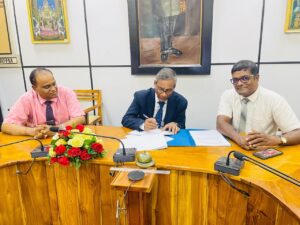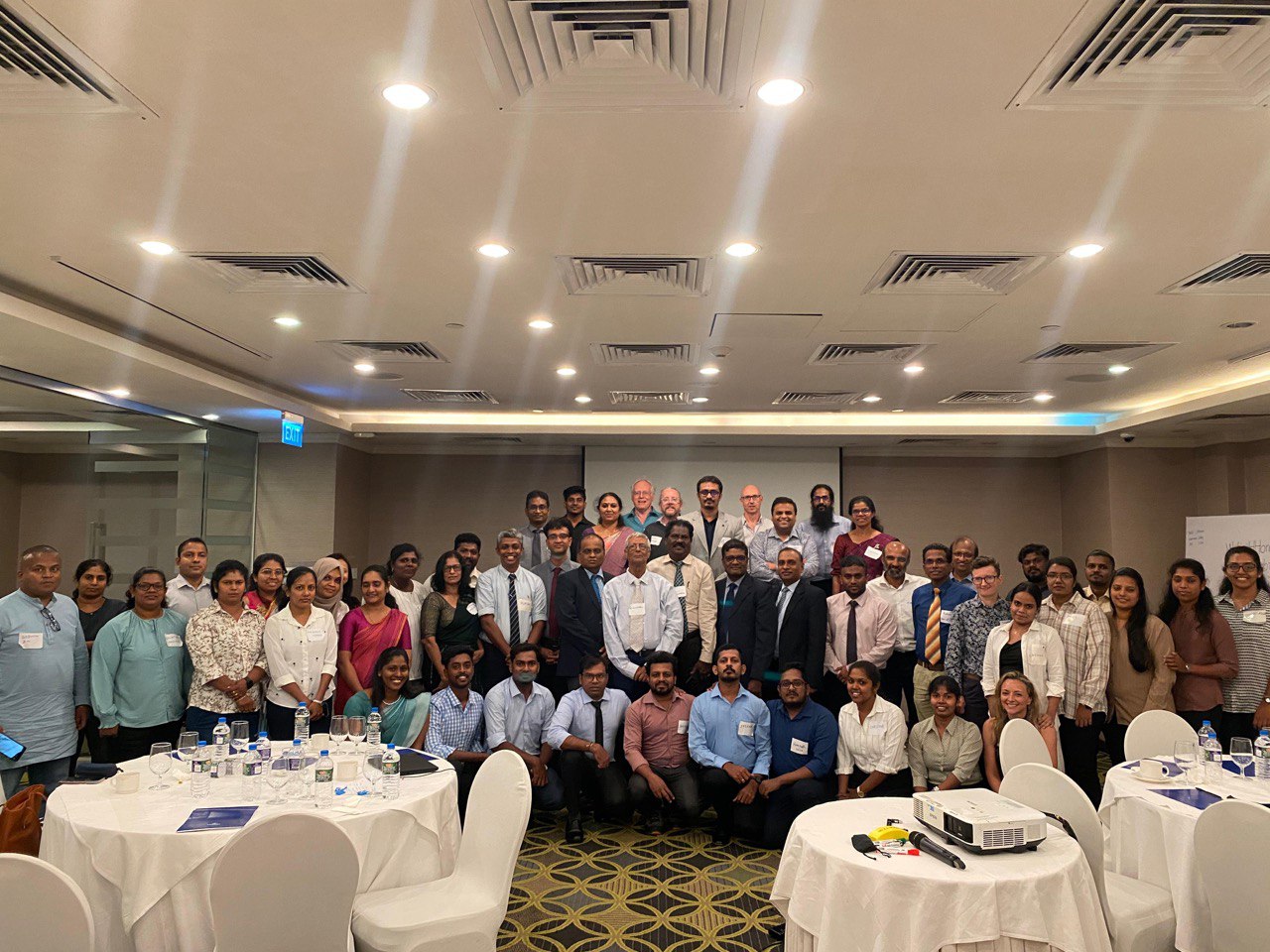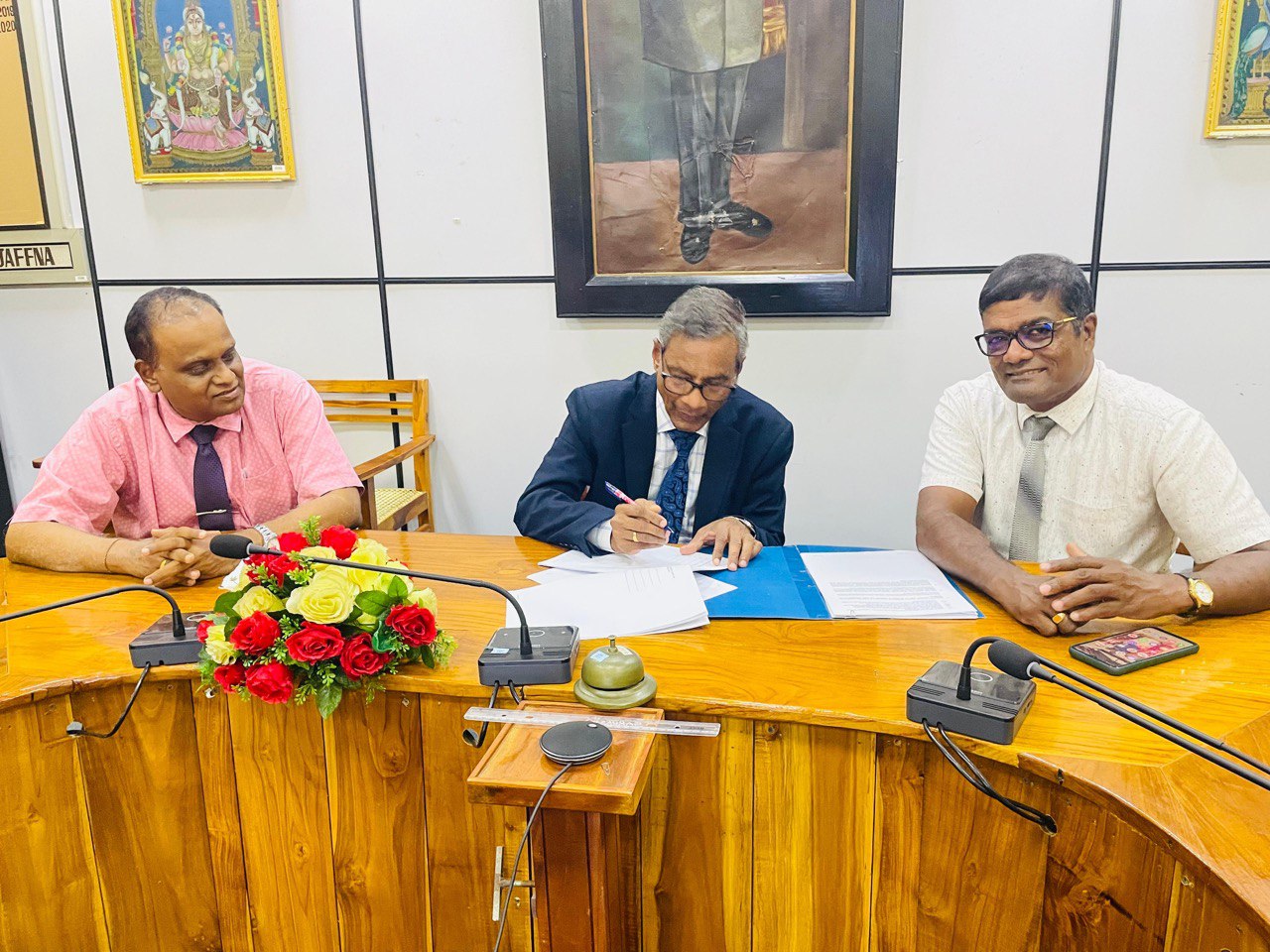
Long-term health conditions are becoming increasingly common in Sri Lanka, contributing significantly to disability and early mortality. Managing multiple chronic conditions (MLTCs) is particularly challenging and often results in poor health outcomes. The DIGIPATHS project aims to improve care for people living with MLTCs by developing and implementing Digitally Integrated Care Pathways (DICPs) that incorporate electronic health records (OpenMRS), a clinical decision support tool, automated feedback mechanisms, and a patient-facing application to support integrated, continuous care. This collaborative initiative is led by the University of Birmingham in partnership with the University of Jaffna, University of Edinburgh, University of Leicester, and Sri Lankan institutions including the University of Kelaniya, University of Colombo, Sabaragamuwa University of Sri Lanka, and the Ministry of Health.
Methodology
The project is organized into six work packages (WPs).
- WP1 involves the establishment of a Stakeholder Consultation Group (SCG) to provide ongoing guidance and support.
- WP2 consists of a mixed-methods rapid evaluation of existing primary care pathways, followed by a stakeholder-led process to prioritise recommendations for improvement.
- WP3 focuses on co-designing and co-producing the DICP, working iteratively with Sri Lankan software developers and the SCG.
- WP4 will implement and test the DICP through a cluster randomised controlled trial in 50 primary care medical units.
- WP5 will conduct a process evaluation to assess feasibility and adoption, while WP6 will carry out an economic evaluation to determine the intervention’s long-term sustainability within the Sri Lankan healthcare system.
Steering Toward a Digitally Empowered Health Future
The DIGIPATHS Annual Meeting-2025 brought together experts, collaborators, and stakeholders for a full-day session to align on project strategy, review progress, and discuss the way forward in advancing digital health initiatives in Sri Lanka.
The meeting began with welcoming remarks from Prof. Krish Nirantharakumar, which set a collaborative and focused tone. Prof. Kumaran, then delivered a comprehensive update on the DIGIPATHS project, covering key aspects such as work package progress, capacity-building efforts, administrative updates, financials, and the roadmap ahead.
Then Dr. Palitha,in his speech explored the broader digital health landscape, emphasized the sector’s current state, strategic directions, and the development of the National Electronic Health Record (NEHR). He highlighted transformative potential and technical challenges of digital health platforms.
A keynote address by Emeritus Prof. Jeremy Wyatt offered a deep dive into integrating digital technologies into primary care. He stressed the importance of accurate data capture through well-designed Electronic Patient Records (EPRs), and the life-saving potential of thoughtful data sharing.
The discussion then shifted to scalability, with Prof. Vajira sharing insights into expanding DIGIPATHS. His session touched on leadership development, Sri Lanka’s eHealth ecosystem, and ongoing digital platforms such as eIMMR, the District Nutrition Monitoring System, and eRHIMS.
Then Prof. Madawa Chandratilake emphasized the need of capacity building for future health professionals. He outlined strategies including interdisciplinary training, institutional collaboration, and improved program monitoring and evaluation in his speech.
Prof. R. Surenthirakumaran discussed his vision of developing the faculty into a globally recognized institution. He reflected on its historical roots, international collaborations, and strategic aspirations.
The day also featured detailed updates on various work packages:
- WP3: Dr. Matt, Dr. Krishna Gokhale, and Mr. Jayakrishna presented on the implementation of systems like OpenMRS, Clinical Decision Support Systems, Dexter, and patient-facing applications.
- WP1: Led by Dr. N. Shobana, this session reviewed community engagement activities (SCG and CEI) and capacity-building initiatives.
- WP2.1: Ms. U. Powsiga presented on the rapid evaluation efforts in the Northern Province.
- WP2.2: Dr. Supun discussed the development of clinical guideline recommendations for chronic diseases including diabetes, hypertension, and mental health conditions.
- WP4 & WP5: Dr. Tiffany Gooden provided progress updates on feasibility studies, and discussed the core concepts of reach, implementation, and adoption.
The meeting concluded with interactive group discussions, where participants addressed key challenges and proposed solutions related to each work package. These discussions were instrumental in shaping the next phase of the project.
Next Steps for DIGIPATHS
- Continued engagement with local stakeholders across Sri Lanka
- WP2.1: Pathway mapping in additional provinces
- WP2.2: Finalizing clinical guideline recommendations
- WP3: Identifying stakeholder preferences for Digital Integrated Care Pathways (DICPs)
- WP4 & WP5: Securing ethical approvals and PMCU permissions
- Establishing subcontracts and recruiting staff at partner universities
- Selecting implementation sites for rollout
The DIGIPATHS Annual Meeting-2025 reinforced the commitment to building a digitally enabled, data-driven health system for Sri Lanka. With clear strategies and collaborative momentum, the project is well-positioned to transform the future of healthcare delivery in the region.



